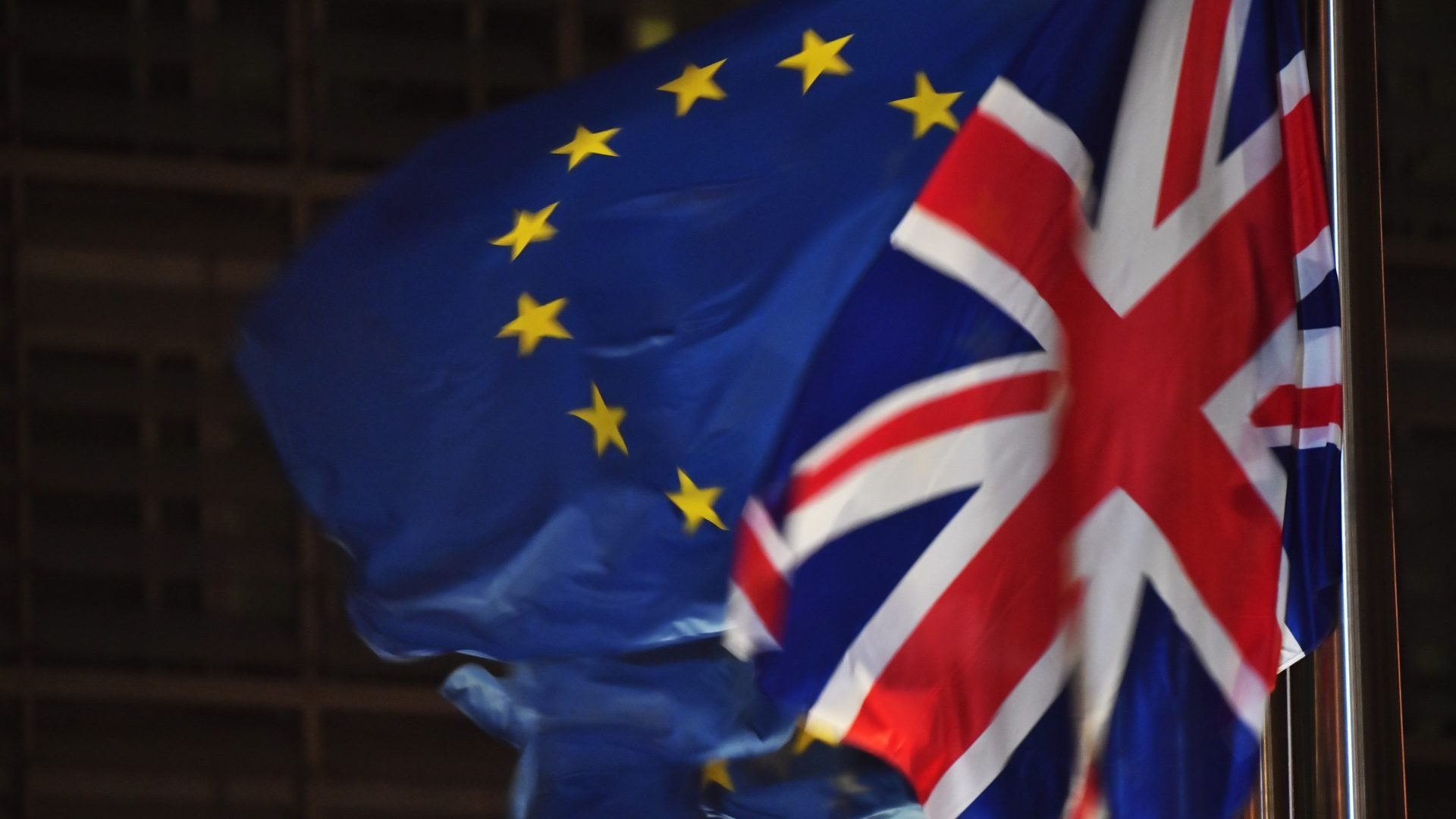58% of those who voted to leave the European Union now want to see closer trade relations with the bloc, a new survey shows.
The report by the British Foreign Policy Group (BFPG) shows that, among all voters, 61% support reducing barriers to trade in goods and services with the EU, with even the majority of Leavers now in favour.
In a survey which suggests that the signing of the Windsor Framework and Russia’s invasion of Ukraine has heralded warmer perceptions of UK-EU relations, 48% see the UK’s relationship with the EU as its most important, higher than that with the US.
And a majority (53%) of Britons now identify as ‘European’, while 41% of Britons do not.
The BFPG’s director and lead author of the report, Evie Aspinall, said: “As public relations between the UK and the EU have warmed in recent months, so too have public perceptions of the EU.
“The Ukraine crisis and the signing of the Windsor Framework have both highlighted the necessity and the potential opportunities to be derived from closer collaboration with the EU, even from outside the bloc.
“As the post-Brexit reality becomes clear, and particularly in the context of current economic challenges, the EU is increasingly seen by Britons and even by Leave voters as a trustworthy and necessary partner.”
The survey found that 46% of people favoured UK-EU cooperation on European foreign policy and regional security, 45% supported joint research collaboration and academic exchanges and 43% approved of cooperation on broader global geopolitical issues such as the rise of China.
In addition, 43% of those surveyed supported new agreements to facilitate UK-EU freedom of movement of people and 42% approved of cooperation on refugees and asylum seekers.
When asked to assess their relative importance, Britons were more inclined to view the UK’s relationship with the EU as most important (48%) than its relationship with the United States (35%). Belief that the UK’s relationship with the EU is the more important relationship has risen six percentage points in the last year, up from 42% in 2022.
In addition the groundswell of public support for Ukraine in the immediate aftermath of Russia’s invasion has been maintained, with a majority of Britons supporting all forms of aid the UK has offered Ukraine.
85% of those surveyed supported providing humanitarian assistance to Ukraine. And the majority (53%) of Britons believe the UK should provide assistance to Ukraine for as long as it takes, with little desire for the UK to withdraw support from the country.
China and Russia were overwhelmingly viewed as strategic rivals, with 86% of those surveyed distrusting Russia to act responsibly in the world, and 74% distrusting China. The United Arab Emirates, which hosts this year’s COP28, is also distrusted by 57% of Britons.
70% were in favour of the UK taking a leading international role in tackling climate change, with support particularly high among 18-25-year-olds (74%) and those in higher (ABC1) socio-economic grades (74%).
Pollsters J.L. Partners surveyed a nationally representative sample of 2,158 people from May 26 to June 1 this year.











